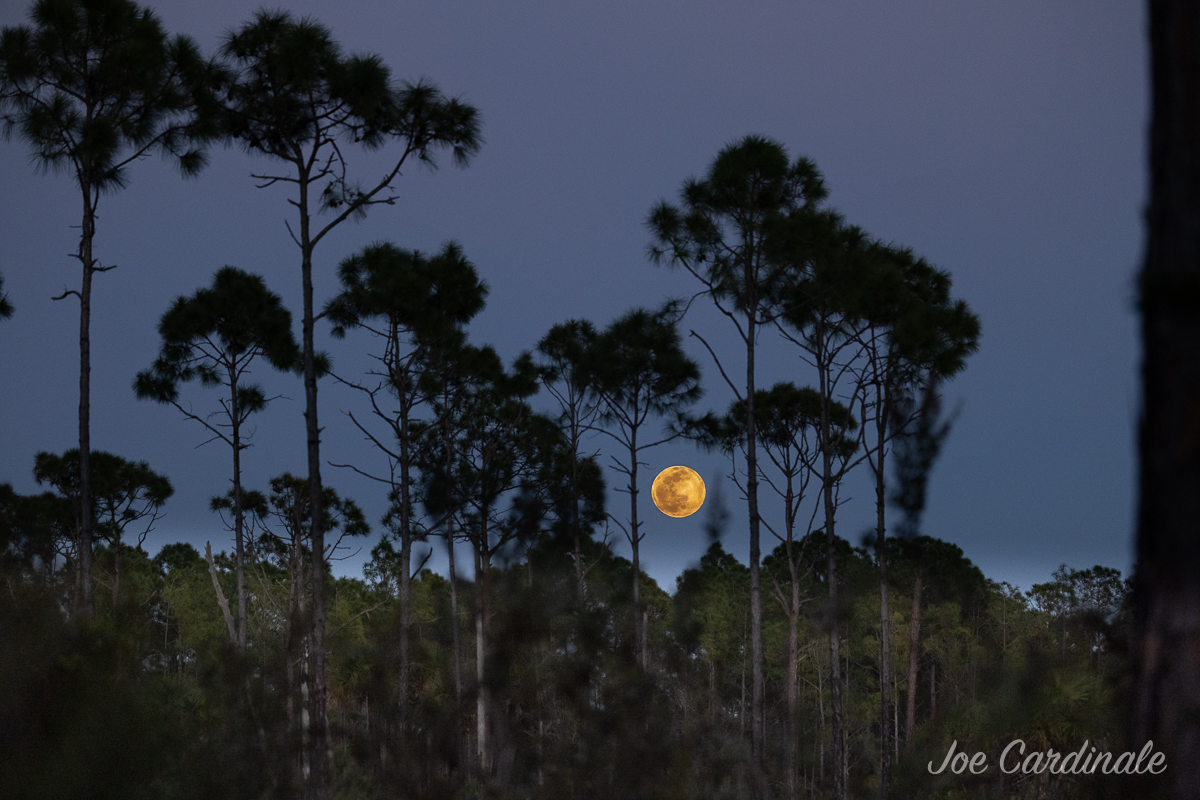Q: What should people do if they see a black bear on one of the trails?

A: Florida Black Bears are the only bear species that inhabit Florida. Safety tips are different with different species of bears due to their varying life histories. The following safety tips refer to black bears and not necessarily brown bears, Grizzly bears, or other bear species.
Think of a black bear as a large, stray dog in your neighborhood. Precautions you’d take with a stray dog apply to black bears too. Don’t make direct eye contact (a threat gesture), don’t run, and don’t turn your back to it.
First, make some noise (clapping hands, bell, whistle) so the bear knows that you are there. Surprising any wild animal is not a good thing.
Stand tall and make yourself look larger by raising your hands above your head. Adults should pick up and hold small children.
Then, back away slowly and get a safe distance away from the black bear. Just like dogs, black bears have a chase instinct and will go after something running from them even if they do not mean any harm. Once you are at a safe distance, you can snap a few photos and enjoy the moment.
Black bears in the wild are shy animals and generally not aggressive towards people. Exceptions would be a black bear that is strongly food conditioned and smells any food you are carrying, and a female black bear who is protecting her cubs. If you see a small cub seemingly by itself, back off immediately. The mother black bear is somewhere very close, and she is watching her cub and she is watching you.
A black bear is a large, powerful, wild animal. It pays to be cautious and to not provoke it, so know a little about black bear behavior before meeting one.
If a black bear stands on its hind legs, it’s not a threat; it just wants to get a better look and smell of the situation.
However, stamping its front legs, jaw popping (snapping its jaws together to make a popping noise), huffing (blowing air out of its nose and mouth quickly), or bluff charging (rushing toward a person but stopping before physically making contact) means it is nervous, and you need to back away from the black bear. Allow the black bear plenty of room to escape, which is all it really wants to do.
If a black bear does approach you and attack, hold your ground and fight back.
If camping at CREW, never store food or any heavily scented items (toothpaste, deodorant, etc.) in your tent. Always store it in a hard topped vehicle, hung from a tree at least 10 feet off the ground and 5 feet away from trees, or in a bear proof container that can be purchased at an outdoor recreation store. Food coolers are not bear proof containers. Click here to camp at CREW.
Online resource:
http://www.myfwc.com/conservation/you-conserve/wildlife/black-bears
By: Dick Brewer

